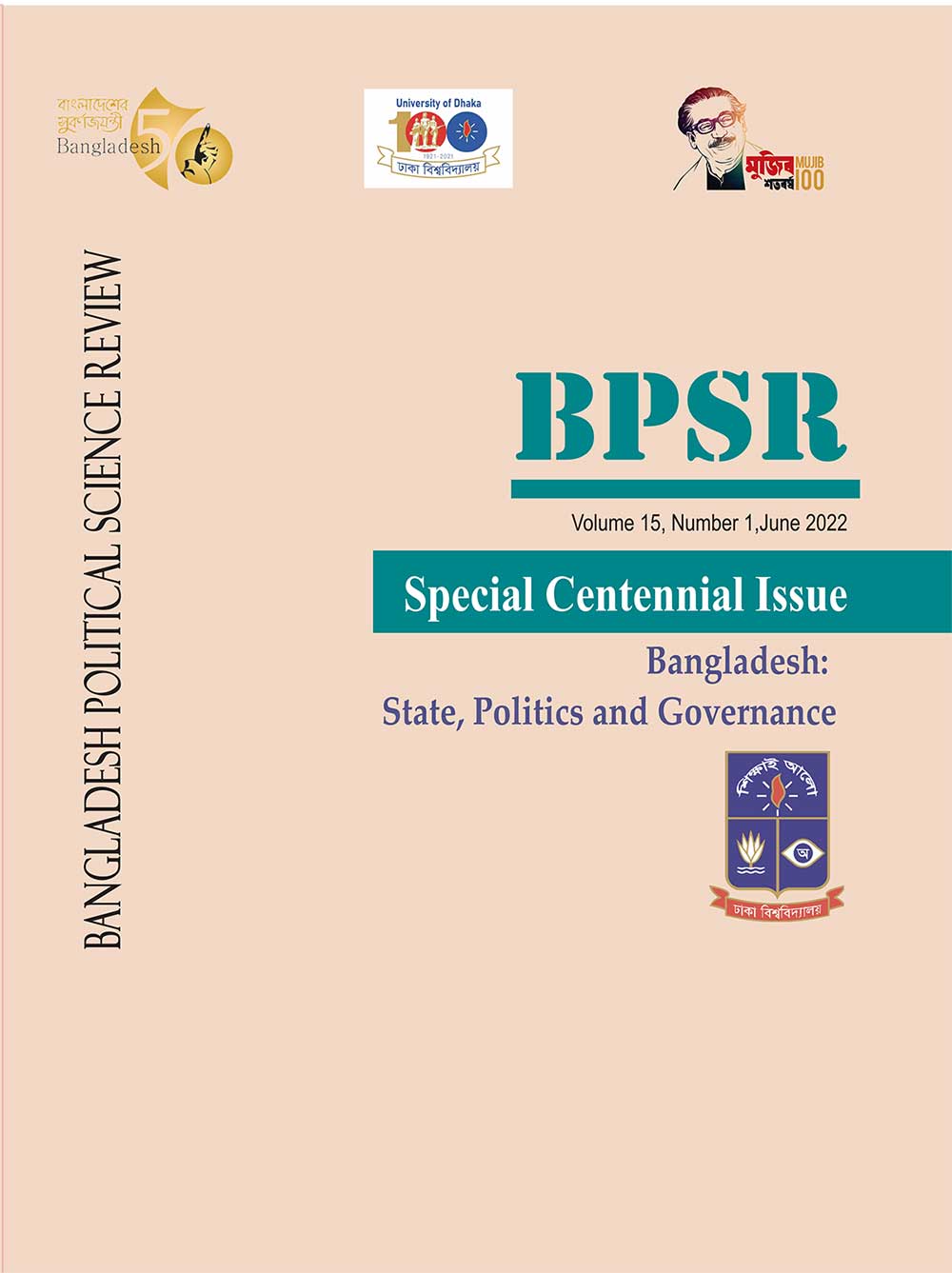
BANGLADESH POLITICAL SCIENCE REVIEW
Constraints related to the Community Management Model for Shared Drinking Water Systems Governance in Coastal Bangladesh
- Muhammad Badrul Hasan*
Published: 14 October 2022
Bangladesh Political Science Review
Volume 15, Number 01, June 2022
DOI : https://doi.org/10.57074/OLNU3609
ISSN 1609-7289 (Print)
ABSTRACT
The community management (CM) model has been touted as a superior alternative to state control or privatization with regard to the governance of rural Bangladesh’s shared drinking water systems (SDWSs) since the 1990s. Later, especially around the start of the 21st century, this model reached its limit, causing dysfunction in several SDWSs in the country. Due to the increasing institutional and socio-economic constraints, the pure community management strategy is unlikely to lead to SDWSs’ durability. This paper, therefore, investigates the limitations that prevent the CM strategy from maximizing SDWSs’ performance in Bangladesh. To this end, a qualitative case study approach was employed to examine pond sand filters (PSFs)—a shared drinking water system—in the southwestern coastal zone of Bangladesh. The study selected 30 functional and dysfunctional PSFs following purposive sampling from three unions (ten per union) in southwestern Bangladesh. This paper finds that a low level of community participation, lack of management rules, absence of an active maintenance committee and their financial incentive, community’s unwillingness to pay, dominance of the local elite, and lack of external support represent barriers to the success of the CM approach in ensuring the durable functionality of SDWSs in coastal Bangladesh. The findings have major implications for policymakers and practitioners seeking to optimize the community management model to ensure the durable functionality of a shared drinking water system in both rural Bangladesh and similar contexts worldwide.
Keywords: shared drinking water system, community management, governance, pond sand filter, policy.
Notes on Contributor
* Muhammad Badrul Hasan, PhD, Assistant Professor, Department of Political Science, University of Dhaka, Dhaka, Bangladesh, badrulhasan@du.ac.bd.
